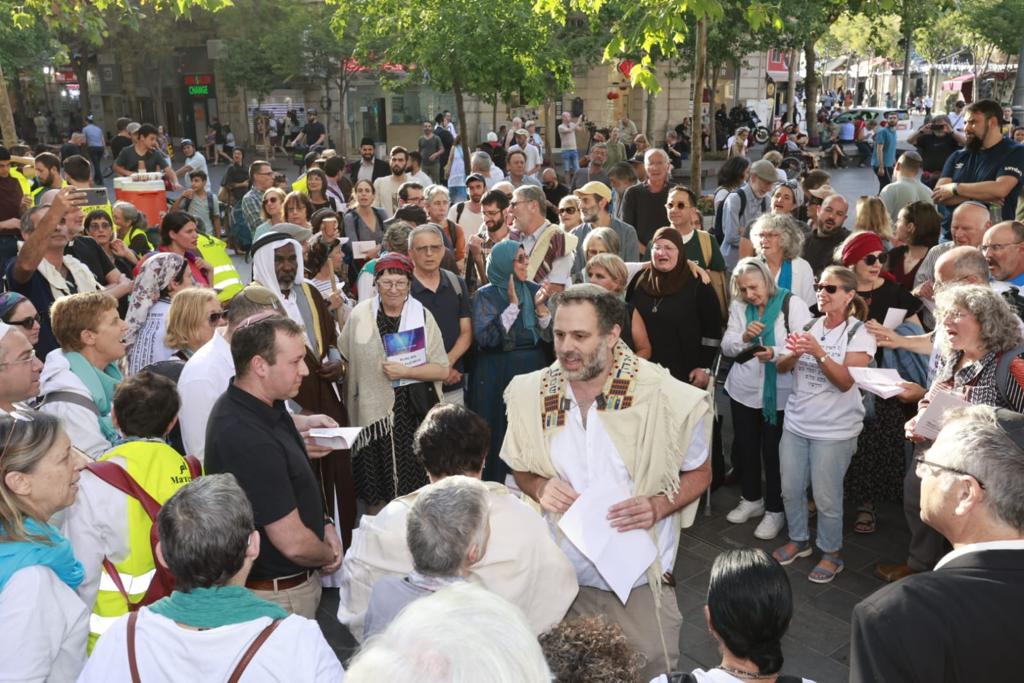
"In the days of great division in Israeli society, and a religious political leadership which strives for violence, annexation and incitement, we seek to draw inspiration for courageous religious leadership," said Avi Dabush, director of the Israeli pro-peace organization Rabbis for Human Rights, at a march for coexistence at the peak of last month's wave of violence.
The most recent violent military confrontation in Gaza between Islamic Jihad and the Israeli Defense Force (IDF) last month saw airstrikes in Gaza and sirens across southern and central Israel, resulting in at least 10 Palestinian civilian deaths and one Israeli civilian casualty.
In the midst of the fear and chaos, Rabbis for Human rights held a march calling for peace in Jerusalem part of the organization’s annual conference titled “Brave Jewish Leadership in Difficult Times.”
At the conference, rabbis of various communities met to present a Jewish alternative to the divisive discourse which currently dominates the political agenda in Israel, as politicians and extremist public figures seek to deepen polarization in Israeli society.
“We choose to march in a place historically occupied by violent right-wing forces since 1995 for its symbolism: the Jaffa Gate and Zion Square," Dabush said.
He explained how he had participated in the “Flag March” at these sites as a boy in the religious youth movement Bnei Akiva. This event was traditionally a celebration of Jerusalem’s reunification after the 1967 Six Day War but has since been hijacked by Jewish supremacist groups.
“We need to be in the public space in the heart of Jerusalem,” Dabush continued. “These are times of tension and security concerns. It sharpens the need to make a common call for peace, justice and equality.”
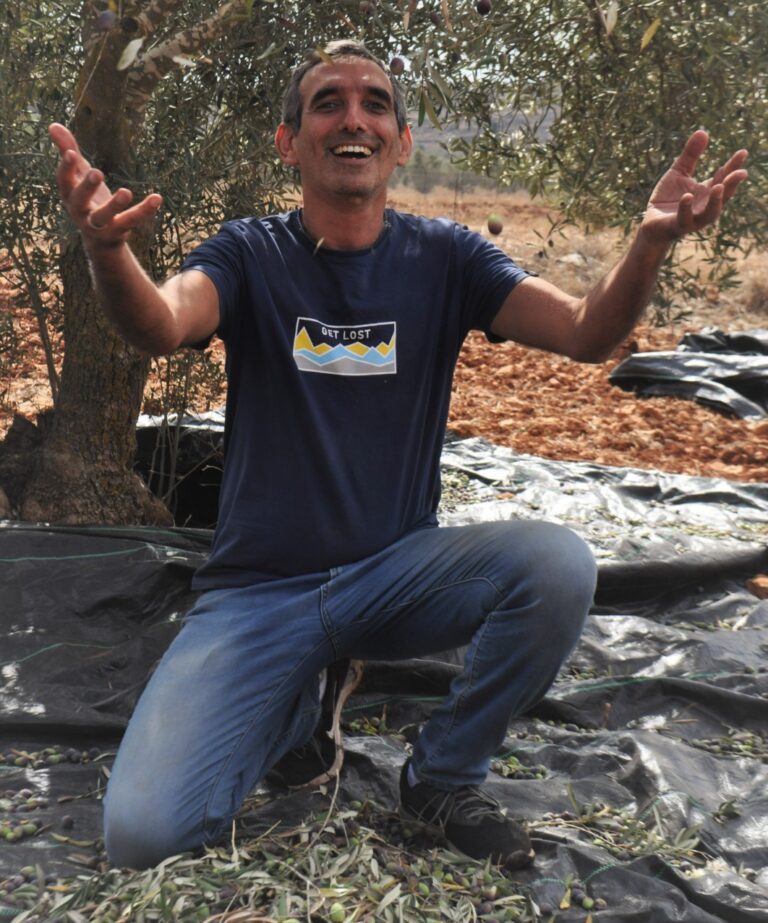
The appeal of the organization is first and foremost to the Jewish public, Dabush explained.
"Since the establishment of the organization in 1988, we have been fighting settler violence against Palestinians and the social rights of the poor. In the public arena, we work in 20 pre-military preparatory schools,” he said.
“I am from Sderot, and I saw the victory of 'Otzma Yehudit' [the right-wing extremist political party which gained unprecedented popularity in the 2022 Israeli elections] in Sderot and Netivot],” Dabush continued. “To push back against a party that connects Judaism with Jewish supremacy, and hatred of Arabs and LGBT people, a political force needs to arise so that we do not give in to this. We will not give up the public sphere.”
Dabush sees the connection between the social and the political message as essential, and emphasized the importance of working in both the Israeli and Palestinian social justice spheres.
“It is the role of leadership, and Jewish leadership in particular, to act in all arenas, and not just talk but to really reach the field. Public housing, the debt-ridden public, Palestinian farmers, seminary students, asylum seekers; the rabbinic role should also connect to and act upon these things and not remain silent,” he said. “A rabbi should be a rabbi not only in the communal sense and speak the Torah’s words, but to be in the field, to be brave and fight for human rights."
Dozens of attendees marched Zion Square to Jaffa Gate, where a joint prayer was held for members of all religions. Dabush pointed out that this route is traditionally dangerous for Muslim and Christian Arabs, with every religious procession attacked by police or Jewish protesters.
“The religion that is used by politicians as an instrument of hatred and violence can and should be the place that connects us, because we are all created in the image of God, and there is no monopoly on truth and justice,” he said. “We need to strengthen the coalition which includes a majority of Israeli society who choose peace.”
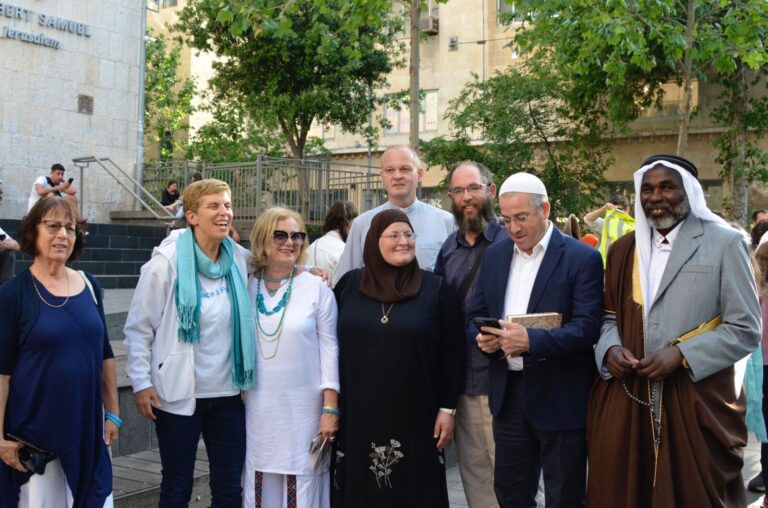
"I joined the march because this is my life's goal to restore normality and sanity to both nations," said Hayam Naas, a member of the Women Wage Peace leadership. "We live next to each other and turn our backs on each other.
Naas called the protest “something sane in a world of insanity.”
"It was surreal: a demonstration for peace when there are rockets being fired,” she went on. “All I can do is pray. I'm not in the government. I'm a woman who thinks we need to make change with all the means we have. People of all religions were there. We all tried to make a change and bring the light. It's true that it hurts, but I decided to play on the field and not stay in the stands.”
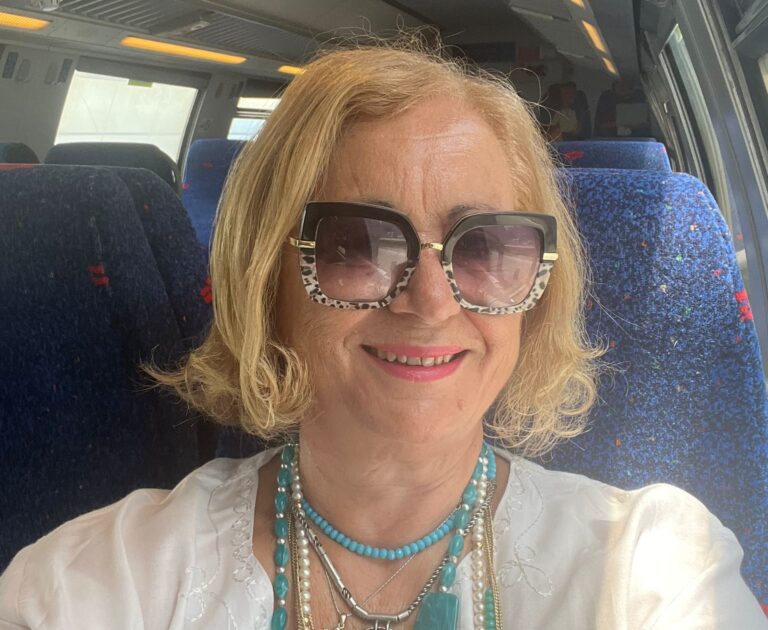
But not only the security situation with Gaza has clouded the desire for peace. In the last few weeks, there have been several incidents of racial profiling and violence against Arabs: Dr Adavi Muhammad from the Ziv Medical Center was arrested and detained at a police checkpoint on the way to work, an Arab boy from Jaffa was beaten in Azrieli Mall because he spoke Arabic, and Druze security guard Hamud Shafi was beaten whilst on duty at Mount Meron by Jewish youths because he spoke Arabic.
"It hurts, I'm crying. We live in a terrible situation. The government doesn't see us," said Naas, "I don't know, maybe the demonstrations can do something. We all live in anxiety. The fear is there, but what is the alternative? We don't have the privilege to remain silent. We are the hope, there is no other hope.
“I am an optimistic woman,” she added. “We are all in the same ship; if it sinks, we will all sink – Arabs and Jews, that's why I chose to be in the demonstrations. There is great frustration, but there is no privilege to sit on the sidelines.”
Naas further explained her stance as an Israeli Arab, saying that "Israeli Arabs are very confused. We have an Israeli side and a Palestinian side. Sometimes one side rages. The state did not give us a proper place. As long as there is an occupation, Israeli Arabs will be frustrated.”
“We want to live here and for our brothers there to live in peace,” she said. “There is no democracy with occupation. I understand both sides, and I try to do good. We, the Israeli Arabs, can create a bridge, but we did not take on that role. We are not the enemy. We want the good of the state and the good of the Palestinian people.”
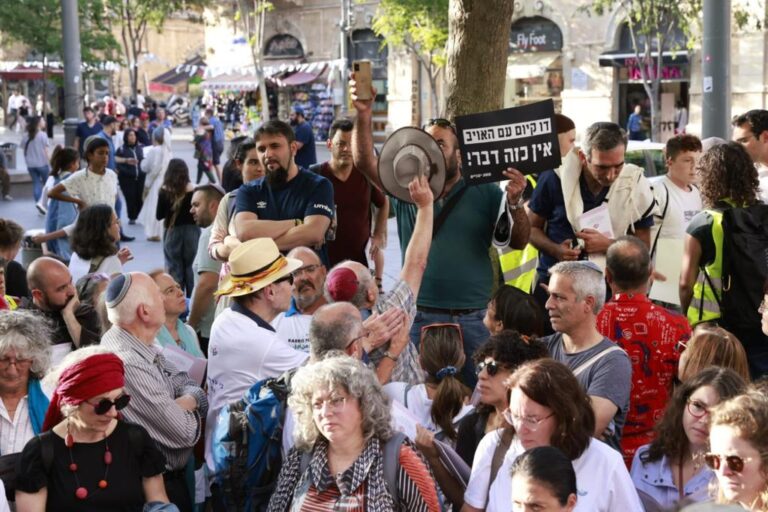
"If we want a good future for the country, we must think about how to live and let others live,” Naas said. “G-d put us here because we must learn how to be together. If the Palestinian people feel that they have a home, everything will change. We need the conscience to be awakened and we will give others their freedom and we will live by our inner choice."
Dozens of peace and interfaith dialogue organizations took part in the march. Among the partner organizations were: Rabbis for Human Rights, the Israeli Rabbinate Network, the Israeli Movement for Reform and Progressive Judaism, the Scottish Church, Churches for Middle East Peace, the Ahmadiyya Muslim Community, the Interfaith Encounter Association, the Interfaith Center for Sustainable Development, an interfaith initiative in the Negev, the Galilee Interfaith Group, Hannaton Educational Center, The Masorti Foundation Israel, and the Swedish Theological Institute.
This article was translated from Hebrew by Hannah Blount.






